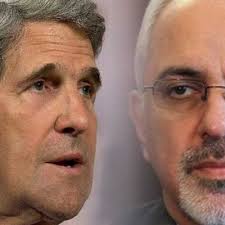What about the Iranian people?
Nov 30th, 2013Both John Kerry and Javad Zarif claimed victory after the interim agreement was signed in Geneva. Since then, experts and pundits have been evaluating the gains and losses of various parties involved in the negotiations. What is missing in most analyses is whether the Iranian people will profit from this agreement.
It can be argued that the Iranian people are the major losers in this game, because during the next twelve months, the West will try to befriend Tehran and therefore, the Mullahs’ unstoppable violation of human rights will be largely ignored by the international community. In 2009, the Obama administration ignored the Green Movement in Iran as it hoped to strike a deal with Tehran. Therefore, the regime had a chance to crush the movement without any objections by the West. More recently, the number of executions has tripled since the secret negotiations between US and Iran begun in Oman. According to Amnesty International, Iran has executed more than 500 people this year.
On the other hand, the Iranian regime has already cashed in upon signing the deal in Geneva. No further sanctions will be imposed on Iran in next six month and the threat of military action has been removed from the West’s menu option. The deal allows Iran to keep its enrichment intact and hence, the West has de facto accepted a nuclear capable Iran.
As a result of the deal, the Iranian rulers are also banking on a large scale lobbying campaign by the Western oil companies that are more than eager to exploit the current political environment, weaken the sanctions and rush back to Iran, which holds the largest combined reserves of gas and oil in the world.
What do the P5+1 countries hope to gain? In reality, the only achievement for the international community is the hope to limit Tehran’s break out options. But this is entirely based on Iran’s good faith to comply with IAEA.


